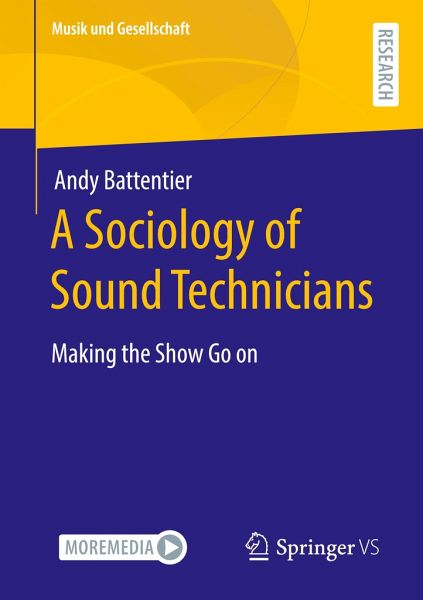
A Sociology of Sound Technicians
Making the Show Go on

PAYBACK Punkte
15 °P sammeln!
If art, and especially music, has been framed in cultural sociology as a collective production relying on a variety of actors, technicians have been mostly framed as "support personnel" marginally impacting the meaning of a cultural production. This book analyzes sound technicians as technical intermediaries. They are autonomous actors of cultural production, and contribute in various ways to the meaning of live or recorded music performances, framed as a form of interaction rituals. From this analysis, it argues that artists should not be considered at the center of art worlds, and proposes a...
If art, and especially music, has been framed in cultural sociology as a collective production relying on a variety of actors, technicians have been mostly framed as "support personnel" marginally impacting the meaning of a cultural production. This book analyzes sound technicians as technical intermediaries. They are autonomous actors of cultural production, and contribute in various ways to the meaning of live or recorded music performances, framed as a form of interaction rituals. From this analysis, it argues that artists should not be considered at the center of art worlds, and proposes a model including various types of actors in different roles, all necessary to produce a cultural object.














